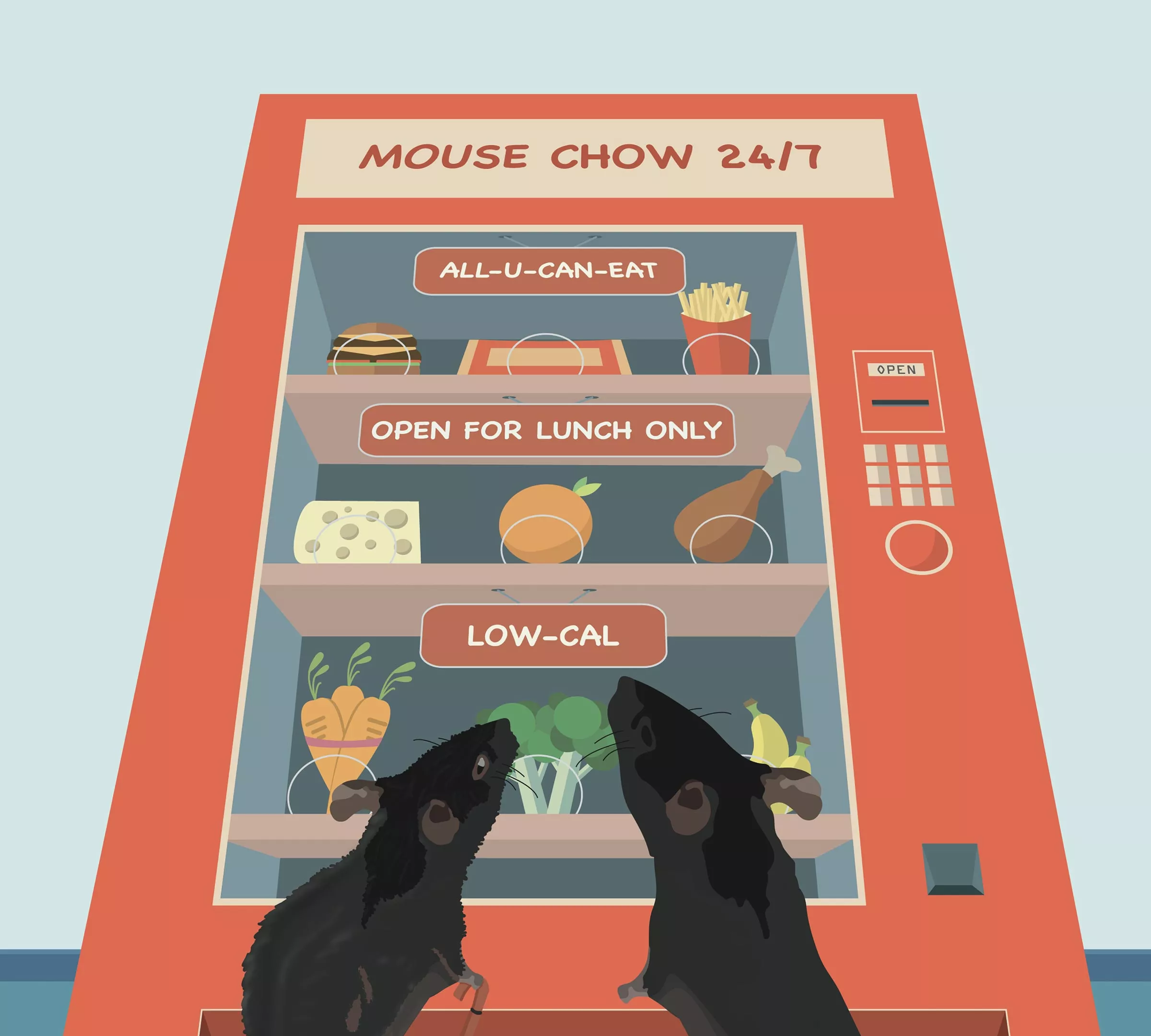One secret of longevity is very simple and not even easy to follow: eat less. Calorie restriction can lead to a longer and healthier life. Now, new research shows that the body's daily rhythm plays an important role in this longevity effect. Joseph Takahashi, a researcher from the Howard Hughes Institute of Medicine (HHMI), and his colleagues reported in science on May 5, 2022 that eating only at the most active time of the day significantly prolonged the life span of mice on a low calorie diet**
In a four-year study of hundreds of mice by Takahashi's team, a calorie reduced diet alone increased the lifespan of animals by 10%. But feeding the mice only at night, when they are most active, can prolong their life by 35%. This combination -- a reduced calorie diet combined with a night eating program -- increased the typical two-year median life span of animals by nine months. For humans, a considerable plan is to limit their diet to daytime.

Takahashi, a molecular biologist at the University of Texas Southwestern Medical Center, said the study could help unravel the controversy surrounding eating plans that emphasize eating only at certain times of the day. As a recent study in the New England Journal of Medicine suggests, such programs may not speed up human weight loss, but they may promote health benefits and prolong life.
Takahashi's team's findings highlight the key role of metabolism in aging. Jean Mayer, nutritionist Sai Krupa Das of the human nutrition research center of the U.S. Department of agriculture, said: "this is a very promising and landmark study." It is reported that he did not participate in this work.
Spring of youth
Decades of research have found that calorie restriction prolongs the lifespan of everything from worms and flies to mice, rats and primates. These experiments reported weight loss, improved glucose regulation, decreased blood pressure and reduced inflammation.
But it has been very difficult to systematically study calorie restriction in people, DAS said, because people can't live in the laboratory and eat quantitative food all their life. She is part of a research team that conducted the first controlled study of calorie restriction in humans - the comprehensive assessment of the long-term effects of reducing energy intake (calerie). Das pointed out that in this study, even a modest reduction in calories showed significant benefits in reducing signs of aging.
Scientists are just beginning to understand how calorie restriction slows aging at the cellular and genetic levels. As animals age, genes associated with inflammation tend to become more active, while genes that help regulate metabolism become less active. Takahashi's new study found that calorie restriction, especially during nocturnal activity, helps offset these genetic changes in mice as they age.

Time problem
In recent years, many popular dietary programs have sprung up, focusing on so-called intermittent fasting, such as fasting every other day or eating for only six to eight hours a day. To reveal the effects of calories, fasting and daily or circadian rhythms on longevity, Takahashi's team conducted an extensive four-year experiment. The team raised hundreds of mice with automatic feeders to control the time and number of meals each mouse ate throughout its life cycle.
Some mice can eat as much as they want, while others are limited in calories by 30% to 40%. The mice on the calorie restricted diet ate at different times. The team found that mice fed a low calorie diet at night and within two or 12 hours lived the longest.
These results suggest that a time limited diet has a positive effect on the body, even if it does not promote weight loss as the study in the New England Journal of medicine does. Takahashi pointed out that his study also did not find differences in body weight between mice at different eating times -- "however, we found profound differences in life expectancy."
Rafael de Cabo, a gerontology researcher at the National Institute on aging in Baltimore, pointed out that the study "shows very carefully that even if you're limiting calories, you can't get the full benefits of limiting calories if you don't eat at the right time."
Takahashi hopes that learning how calorie restriction affects the body's internal clock as we age will help scientists find new ways to extend human health and longevity. This may be achieved through calorie limiting diets or drugs that mimic the effects of these diets.
Meanwhile, Takahashi is learning a lesson from his mice - he limits his diet to 12 hours. But he said -- "if we find a drug that can improve your clock, we can test it in the laboratory to see if it will prolong life."